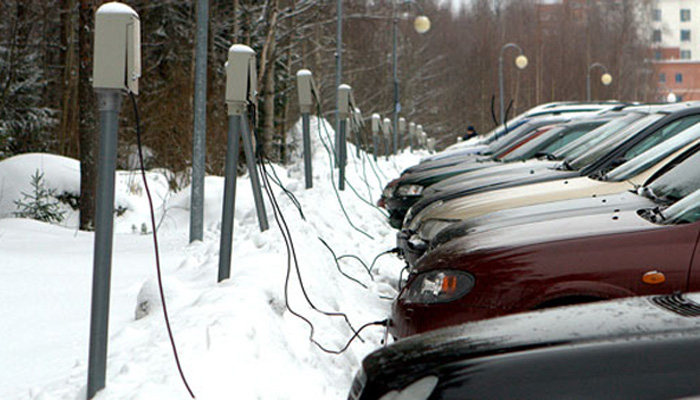Over the past two months, a total of 81 passenger vehicle-related fires have been opened with Manitoba Public Insurance. Nearly three dozen of these fires in December and January were directly related to the use of block heaters.
Disturbingly, some of these vehicle fires resulted in houses or carports also catching fire. Investigations discovered a number of these vehicle fires resulted from the use of interior car warmers and household interior heaters being used to warm vehicles in outdoor garages and carports.
Over the same two-month time frame in a normal year, passenger vehicle fires are typically half the numbers compared to 2021.
“Many of these fires could have been prevented. The use of an interior electric heater in an outdoor winter setting is extremely dangerous,” explained Paul Brisson, MPI Fire Investigator. “The issue is that moisture and overheating of the heater elements and internal components, which are not intended to be running continuously for extended periods of time especially outdoors in extreme cold, can cause the heater or power supply to fail.”
Interior home heaters used in conjunction with an extension cord causes excessive power draw and may overload a circuit or cause a failure in the extension cord, plugs, fuse panels, said Brisson.
“Block heaters are intended to be used in cold climates to warm an engine prior to starting the vehicle,” he said. “As a general rule, an engine block heater should be used when the temperature drops below -15 and greater. It’s strongly discouraged to plug in a vehicle which is parked in an attached garage.”
Preventative Steps
- Block heater power cords and extension cords must be free of defects, cuts, dirt, and corrosion and should be stored properly to avoid damage which could lead to a fire.
- Block heater power supply cords should be capped when not in use (if equipped), and be properly routed through the front grill or bumper area of a vehicle to avoid pinching or damage to the cord during winter months.
- Do not drive over your extension cord. This could potentially crack the cord and result in electrical failure when plugged in.
- It is recommended that block heater power supply and extension cords be plugged into a GFCI outlet rather than a standard electrical outlet. The GFCI (Ground Fault Circuit Interrupter) adds an additional layer of safety as it contains a sensor that monitors the flow of electricity current through the wires. When the GFCI sensor detects a variation from the normal current it shuts off the flow of electricity in the outlet and may prevent damage or fire caused by an electrical fault.




